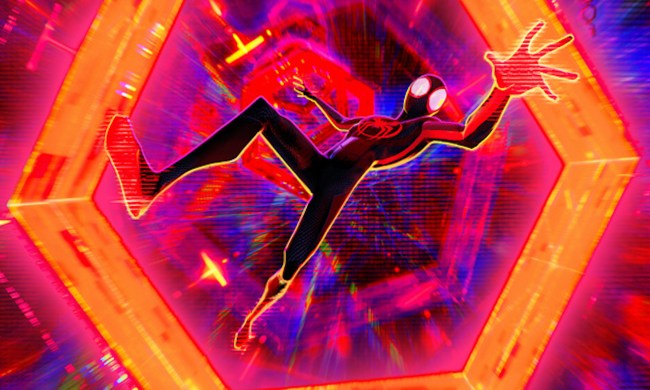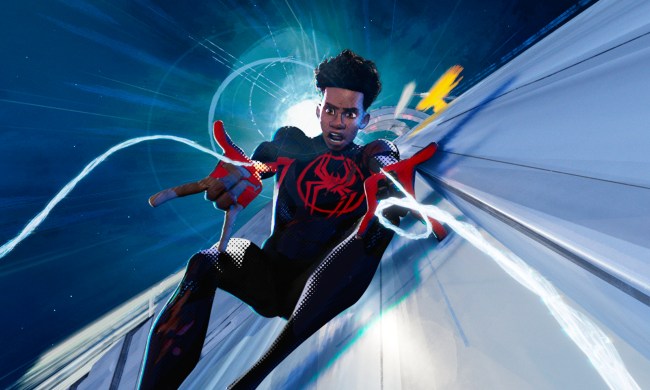 Avi Arad is quite possibly the man most directly responsible for the deluge of comic book movies in theaters today. The former CEO of Marvel Studios and COO of Marvel Entertainment has brought his love of the medium to the big screen, from smaller characters like Blade to household names like Iron Man and Spidey. His partner is comic book movie madness is Matt Tolmach, the former president of Columbia Pictures. They worked together previously on Sam Raimi’s Spider-Man trilogy starring Tobey Maguire and–reluctant to let go of one of their favorite characters–have ventured forward with The Amazing Spider-Man, a slightly different iteration of the comic book series.
Avi Arad is quite possibly the man most directly responsible for the deluge of comic book movies in theaters today. The former CEO of Marvel Studios and COO of Marvel Entertainment has brought his love of the medium to the big screen, from smaller characters like Blade to household names like Iron Man and Spidey. His partner is comic book movie madness is Matt Tolmach, the former president of Columbia Pictures. They worked together previously on Sam Raimi’s Spider-Man trilogy starring Tobey Maguire and–reluctant to let go of one of their favorite characters–have ventured forward with The Amazing Spider-Man, a slightly different iteration of the comic book series.

We sat down with them in downtown New York to discuss how comics came to dominate Hollywood, why they chose Marc Webb to direct, and much more.
You guys obviously have very a personal connection to comics and Spider-Man. As you’ve mentioned before, you were basically being at the forefront of what we see now — all the studios want to make comic book movies. It’s part of the zeitgeist.
Avi Arad: The biggest thing we had going for us [was] that the new generation of filmmakers and writers came from kids who actually did read comics and liked fantasy literature. And then technology started to move, so you can bring it to life.
Matt Tolmach: There’s another thing, and I was a studio executive at the time, so from a buyer standpoint, source material is always a bonus. When you’re a studio and you’re spending a lot of money on a slate of movies, you’re always looking for ways to justify risk and to convince your bosses that what you’re about to do is insane. Best-selling novels and you know… because you can say, “Well, there’s already an audience for this!”

Avi Arad: I remember how we got women to go to comic [book movies]. It was a tit for tat. Honey, if you go with me to see this comic book movie that I know you don’t want to see, these kind of action movie stuff, I’ll take you to Love Note, whatever, The Notebook. And then people started to realize, wait a second. Why are we branding it?
And so we became a genre that rules the business, basically, because it usually will have a message and a metaphor. It’s emotional [at] its core, which Spider-Man is uniquely qualified for this category. And his powers and his abilities give you the ultimate wish fulfillment, which is what we go to the movie house for. Wish fulfillment and to feel the angst and the pains that we keep here, and then when we see it on the screen, it’s cheaper than seeing a shrink. And you get a couple of tears out, and you understand it, and you know, it’s not isolated to you because there’s someone next to you sniffing too. [sniffing] And that’s the power of a good movie.
A lot of people love 500 Days of Summer, myself among them. Marc Webb seems like a bit of a risk to give millions and millions of dollars. It was spun as a little bit more low budget, and now of course it is a giant movie.
Matt Tolmach: It was never going to be low budget.
Avi Arad: There’s no way to make a Spider-Man [movie] low budget.
Matt Tolmach: And that was never the conversation. It was, you have a responsibility, when you’re making a Spider-Man movie. You have a responsibility to do two things: You have to deliver spectacular visuals, incredible action, and all of that, which we think we did. You also have to deliver an incredibly emotional, real character, and a character with a heart because the power of Spider-Man is this boy who sits under the costume. And if you’re going to tell a Peter Parker story, you better be doing it with somebody who’s capable of that. So where do you build from?
You don’t build from the outside in and end up with a great powerful story. You have to find someone who’s capable of telling that kind of a story, and so people are always looking at us like we’re insane for making this choice, frankly, as they should have for Sam Raimi back then. But in both cases, and they’re totally different people with different outlooks on life, they’re both guys who had a real love of Peter Parker and a real sense of who he is, and a hatred for injustice, a sense of irony, all of those things that are at the heart of that character, that’s where you start from. And that’s why it was Marc Webb. It wasn’t about budget, it was about heart.

Matt Tolmach: You love them. You’re on board.
There must be something happening in society where they’re so popular for men and women to read comics. What do you think it is that speaks to us?
Avi Arad: I think it speaks to 9/11. This is where the resurgence [was] for me. I saw it so clearly. Because “do-gooder” used to be a put-down, right? You’d say, “Eh, he’s a do-gooder.” It’s no longer — we need heroes. We need role models, and we need someone to point the way. It actually can be done. You don’t really need to fly; it’s a metaphor, man, it’s not like, you don’t need the real wings, but I think like the world became a less comfortable environment. Crime is very sophisticated. Terrorism. I think 9/11, for me, changed the world forever. The vulnerability put us in a place where we need these heroes.
It’s interesting because I was going to ask you all about New York City as the quintessential comic book city. But also, as someone who lived here during 9/11, some of the scenes in the movie where the traffic is blocking everything and they’re going, “How am I going to get where I need to be?” It brings up this visceral response of panic.

You need Peter Parker… Unfortunately, it’s no longer the naivety of the ’50s.
Matt Tolmach: I also think it taps into something else, which is people want to believe. For me, the great thing about a character like Peter Parker and comic book characters in general is they say that there’s something special about you and nobody knows it. It’s a secret. You know it. Maybe they’re not even allowed to know it. But what they say is in a pinch, you’re going to do the right thing for people. And I think it very much related to 9/11. I think people need to feel, not only that there are heroes out there but they’re heroes [inside]. That there’s something I will do if I need to, and it’s a very empowering thing. And it is what Peter Parker’s about. Nobody knows Peter Parker’s a hero, but at the end of the day, that’s who he’s gonna be, and I think that that’s so powerful.



